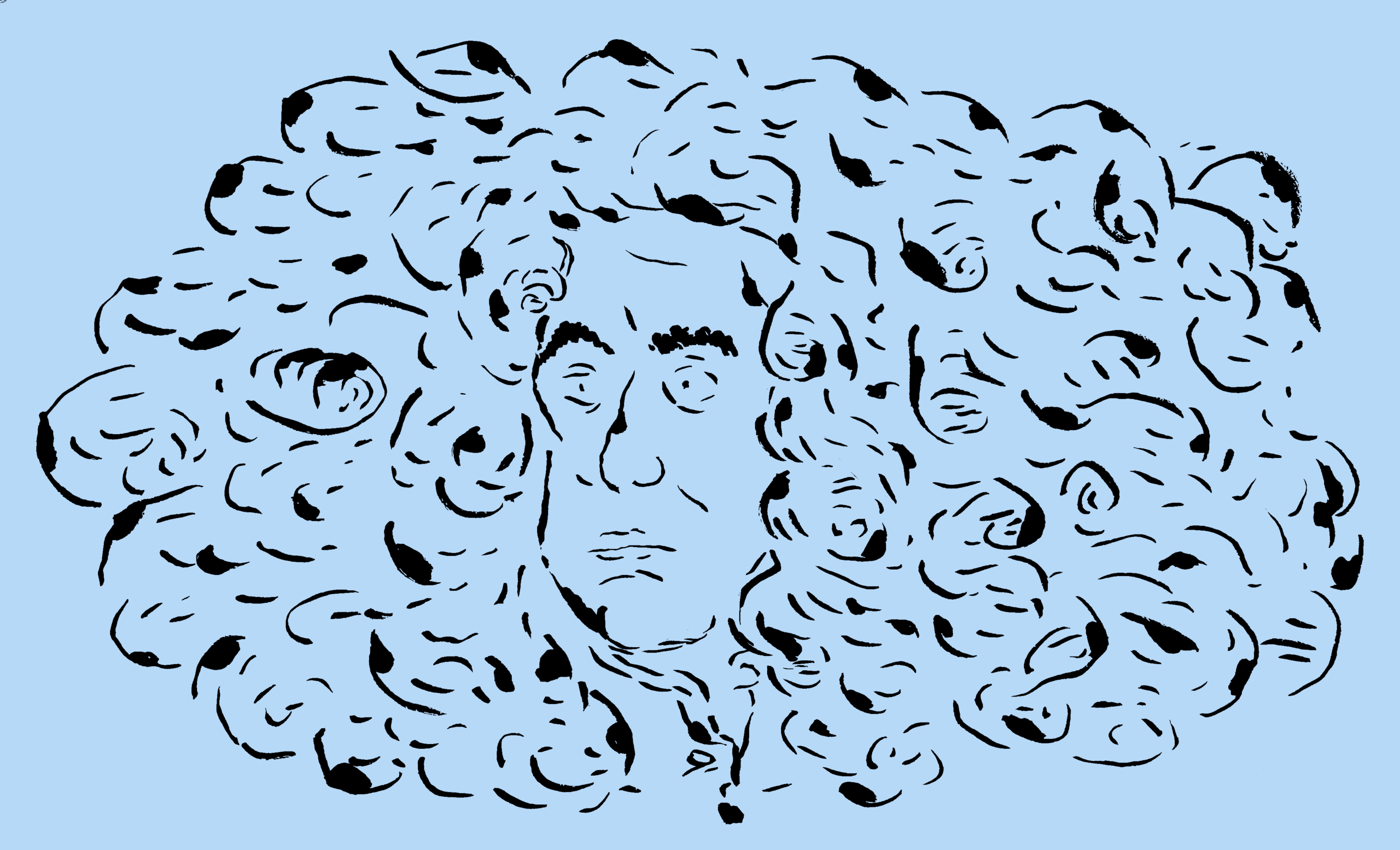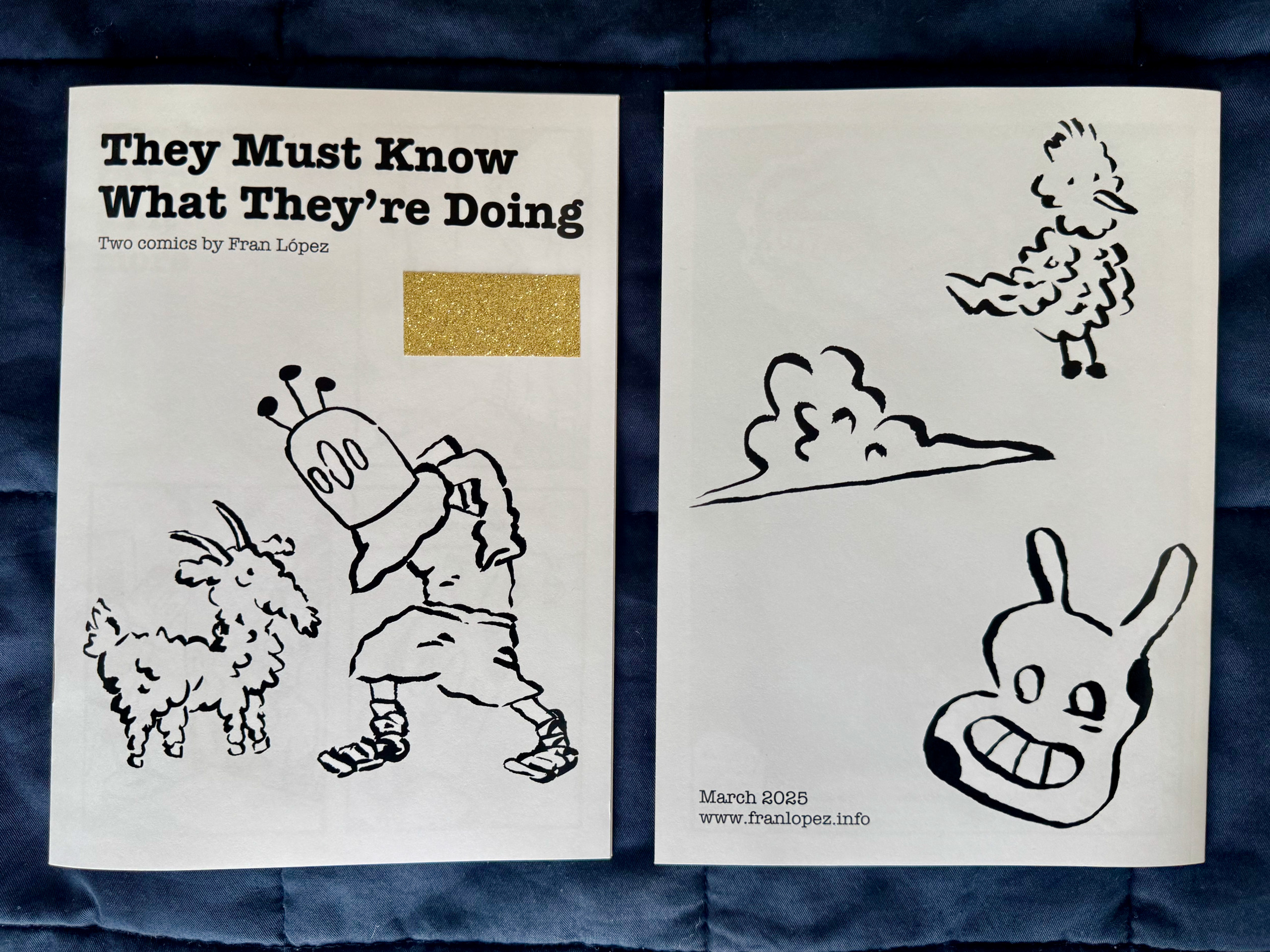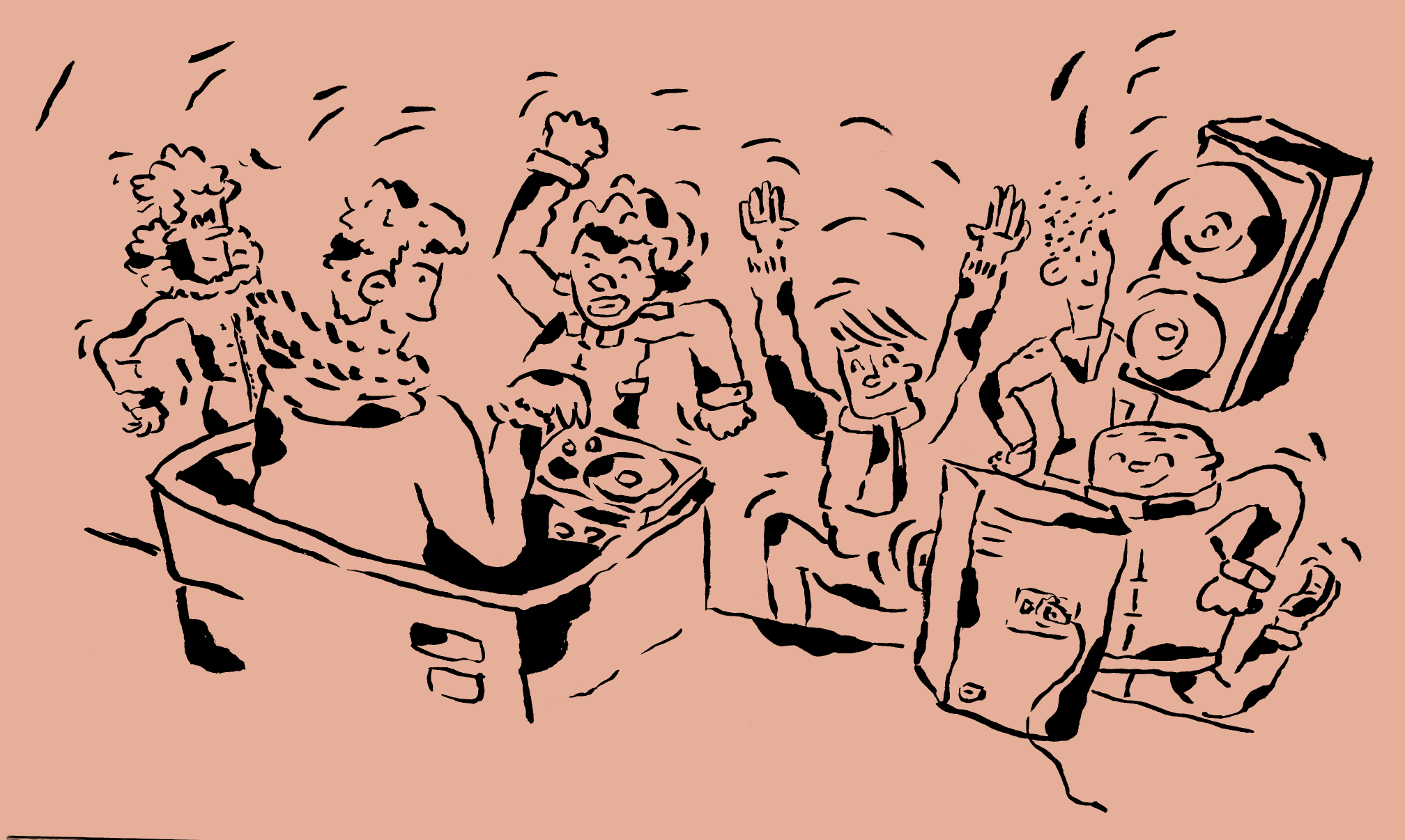A few weeks ago, someone posted on some social network some joke that brought to my mind a poem by José Watanabe.
In the poem, someone throws, downhill, before Newton, a rock. Seeing it roll, this person begins to form, in a somewhat vague way, an idea that could be gravity. But this thought, which does not quite blossom, eventually escapes him. It doesn’t matter, our friend thinks: someday, someone will manage to formulate it completely.
When I am optimistic, I imagine a similar path for these comics I’ve been making lately. Someday, maybe, somewhere, someone will read that series of indeterminate ideas on paper and manage to formulate some more finished notion.
I once read, in some book that I don’t remember well, that Newton had a certain tendency to lose himself in his intellectual work and, as it were, to abandon his material existence a little bit during those periods. He would seclude himself in his room at the university to think and take notes, he would forget to eat, when he was hungry he would scream until somebody brought him food, he didn’t change or bathe, smelling incredibly bad in his confinement.
To tell the truth, I’m not so sure he was really like that. Perhaps I read an ill-intentioned or exaggerated slander or, more likely, the anecdote, with its charm, exaggerated in my memory.
Anyway, it always seemed to me like a very good setting for a sitcom. Cambridge, end of the 17th century, a group of professors, assistants and students who spend their time dealing with a sullen, difficult Newton, locked in his room, engrossed in shaping infinitesimal calculus and his intermediated epistolary little wars with Leibniz.
It all takes place around his room, which us viewers never enter. Newton is an ominous but invisible presence. We hear him scream, we learn of his grievances through the brave characters who enter his room and come out frightened. Most of the chapters are a gear of entanglements that are put into action from the difficult interpretation or concretion of a new errand requested by the genius to whom nothing, ever, ends up satisfying completely.
In the middle of this dance, the characters that we do see and know have their misunderstandings, intrigues and love affairs. They all have the feeling of understanding the significance of Newton’s work and, at the same time, the frustration of having to deal with someone like that. It’s in that that simultaneity that something similar to affection (among all the characters, but also from them towards Newton) takes form.



